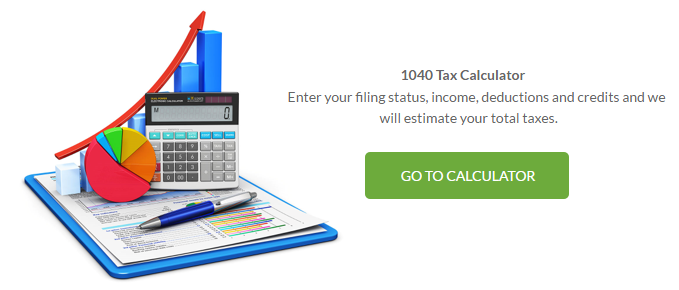The following tax center has been developed to help you quickly find information related to your particular area of interest, industry or profession on one page. We’re continually developing this section, so if you find that a particular tool and/or service could be beneficial to you and/or the general public, please kindly inform us and we’d be glad to review your request.
 Track Your Refund
Track Your RefundFind out when you’ll receive your federal and state refund.
Tax Due Dates
Please note the following tax due dates on your calendar, and come back often to keep up with the changes.
Tax Rates
Tax rates change every year. Take a look at this year’s tax rates.
Tax Forms & Publications
Quickly view and print any IRS tax form or publication. Saves a trip to the post office.
Record Retention Guide
Use this guide to determine how long you need to keep your tax and other financial records.
State Tax Forms
Quickly print the tax forms you need from any State in the country.
1040 Tax Calculator
Enter your filing status, income, deductions and credits and we will estimate your total taxes.
 When will you receive your refund? The answer depends on how you filed your return. The IRS should issue your refund check within six to eight weeks of filing a paper return. If you chose to receive your refund through direct deposit, you should receive it within a week. If you use e-file, your refund should be issued between two and three weeks.
When will you receive your refund? The answer depends on how you filed your return. The IRS should issue your refund check within six to eight weeks of filing a paper return. If you chose to receive your refund through direct deposit, you should receive it within a week. If you use e-file, your refund should be issued between two and three weeks.
You can check on the status of your refund by clicking on the links below:
Individual Taxpayers (Form 1040)
- January 15, 2025 – 4th Quarter 2024 Estimated Tax Payment Due
- April 15, 2025 –
- Individual Income Tax Returns (Form 1040) Due for the 2024 tax year
- First Quarter 2025 Estimated Tax Payment Due
- Deadline to File an Extension (Form 4868)
- Last Day to Make IRA and HSA Contributions for 2024
- June 16, 2025 – 2nd Quarter 2025 Estimated Tax Payment Due
- September 16, 2025 – 3rd Quarter 2025 Estimated Tax Payment Due
- October 15, 2025 – Extended Deadline for 2024 Tax Return Filing (if an extension was filed)
Business Tax Deadlines
- January 15, 2025 – 4th Quarter 2024 Estimated Tax Payment for Corporations (Form 1120-W)
- March 17, 2025 –
- Partnerships (Form 1065) and S-Corporations (Form 1120-S) Tax Return Due Date
- Deadline to Request Extension for Partnerships and S-Corporations
- April 15, 2025 –
- C-Corporation (Form 1120) Tax Return Due Date
- First Quarter 2025 Estimated Tax Payment Due for Corporations
- June 16, 2025 – 2nd Quarter 2025 Estimated Tax Payment Due for Corporations
- September 16, 2025 –
- 3rd Quarter 2025 Estimated Tax Payment Due for Corporations
- Extended Deadline for Partnerships and S-Corporations (if an extension was filed)
- October 15, 2025 – Extended Deadline for C-Corporation Tax Returns (if an extension was filed)
Payroll and Employment Taxes
- Due quarterly: April 30, July 31, October 31, 2025, and January 31, 2026 (Form 941 for payroll taxes).
State and Local Tax Deadlines
State tax deadlines may vary by jurisdiction, so it’s important to check with your state’s tax agency for specific due dates.
Let me know if you need information specific to your state or business type!
Single Filers:
| Tax Rate | Taxable Income Range |
|---|---|
| 10% | Up to $11,925 |
| 12% | $11,926 to $48,475 |
| 22% | $48,476 to $103,350 |
| 24% | $103,351 to $197,300 |
| 32% | $197,301 to $250,525 |
| 35% | $250,526 to $626,350 |
| 37% | Over $626,350 |
Married Filing Jointly:
| Tax Rate | Taxable Income Range |
|---|---|
| 10% | Up to $23,850 |
| 12% | $23,851 to $96,950 |
| 22% | $96,951 to $206,700 |
| 24% | $206,701 to $394,600 |
| 32% | $394,601 to $501,050 |
| 35% | $501,051 to $751,600 |
| 37% | Over $751,600 |
Heads of Household:
| Tax Rate | Taxable Income Range |
|---|---|
| 10% | Up to $17,000 |
| 12% | $17,001 to $64,850 |
| 22% | $64,851 to $103,350 |
| 24% | $103,351 to $197,300 |
| 32% | $197,301 to $250,500 |
| 35% | $250,501 to $626,350 |
| 37% | Over $626,350 |
These adjustments are designed to account for inflation and prevent “bracket creep,” where taxpayers could be pushed into higher tax brackets due to inflation rather than an actual increase in real income.
|
View or Print State Tax Forms here.
|
| The publications listed below are located on the IRS Web site and require Adobe Acrobat Reader to view. Visit the Adobe Web Site to install the latest version of Acrobat Reader. Click a publication to view it online.
|
| Publication 1 | Your Rights As a Taxpayer |
| Publication 3 | Armed Forces’ Tax Guide |
| Publication 15 | Circular E, Employer’s Tax Guide |
| Publication 15A | Employer’s Supplemental Tax Guide |
| Publication 17 | Your Federal Income Tax |
| Publication 51 | Circular A, Agricultural Employer’s Tax Guide |
| Publication 54 | Tax Guide for U.S. Citizens and Resident Aliens Abroad |
| Publication 80 | Circular SS – Federal Tax Guide for Employers in the U.S. Virgin Islands, Guam, American Samoa, and the Commonwealth of the Northern Mariana Islands |
| Publication 225 | Farmer’s Tax Guide |
| Publication 334 | Tax Guide for Small Business |
| Publication 463 | Travel, Entertainment, Gift, and Car Expenses |
| Publication 501 | Exemptions, Standard Deduction, and Filing Information |
| Publication 502 | Medical and Dental Expenses |
| Publication 503 | Child and Dependent Care Expenses |
| Publication 504 | Divorced or Separated Individuals |
| Publication 505 | Tax Withholding and Estimated Tax |
| Publication 509 | Tax Calendars |
| Publication 510 | Excise Taxes (Including Fuel Tax Credits and Refunds) |
| Publication 514 | Foreign Tax Credit for Individuals |
| Publication 515 | Withholding of Tax on Nonresident Aliens and Foreign Corporations |
| Publication 516 | U.S. Government Civilian Employees Stationed Abroad |
| Publication 517 | Social Security and Other Information for Members of the Clergy & Religious Workers |
| Publication 519 | U.S. Tax Guide for Aliens |
| Publication 521 | Moving Expenses |
| Publication 523 | Selling Your Home |
| Publication 524 | Credit for the Elderly or the Disabled |
| Publication 525 | Taxable and Nontaxable Income |
| Publication 526 | Charitable Contributions |
| Publication 527 | Residential Rental Property (Including Rental of Vacation Homes) |
| Publication 529 | Miscellaneous Deductions |
| Publication 530 | Tax Information for First-Time Homeowners |
| Publication 531 | Reporting Tip Income |
| Publication 535 | Business Expenses |
| Publication 536 | Net Operating Losses |
| Publication 537 | Installment Sales |
| Publication 538 | Accounting Periods and Methods |
| Publication 541 | Partnerships |
| Publication 542 | Corporations |
| Publication 544 | Sales and other Dispositions of Assets |
| Publication 547 | Casualties, Disasters, and Thefts |
| Publication 550 | Investment Income and Expenses (Including Capital Gains and Losses and Mutual fund Distributions) |
| Publication 554 | Older Americans’ Tax Guide |
| Publication 555 | Community Property |
| Publication 556 | Examination of Returns, Appeal Rights, and Claims for Refund |
| Publication 557 | Tax-Exempt Status for Your Organization |
| Publication 559 | Survivors, Executors and Administrators |
| Publication 560 | Retirement Plans for Small Business |
| Publication 570 | Tax Guide for Individuals With Income from U.S. Possessions |
| Publication 571 | Tax-Sheltered Annuity Programs for Employees of Public Schools and Certain Tax-Exempt Organizations |
| Publication 575 | Pension and Annuity Income |
| Publication 583 | Starting a Business and Keeping Records |
| Publication 587 | Business Use of Your Home (Including Use by Day-Care Providers) |
| Publication 590-A | Contributions to Individual Retirement Arrangements (IRAs) |
| Publication 590-B | Distributions to Individual Retirement Arrangements (IRAs) |
| Publication 595 | Tax Highlights for Commercial Fishermen |
| Publication 596 | Earned Income Credit |
| Publication 598 | Tax on Unrelated Business Income of Exempt Organizations |
| Publication 721 | Tax Guide to U.S. Civil Service Retirement Benefits |
| Publication 901 | U.S. Tax Treaties |
| Publication 907 | Tax Highlights for Persons With Disabilities |
| Form 911 | Request for Taxpayer Advocate Service Assistance |
| Publication 915 | Social Security and Equivalent Railroad Retirement Benefits |
| Publication 925 | Passive Activity and At-Risk Rules |
| Publication 926 | Household Employers Tax Guide |
| Publication 929 | Tax Rules for Children and Dependents |
| Publication 936 | Home Mortgage Interest Deduction |
| Publication 939 | General Rule for Pensions and Annuities |
| Publication 946 | How to Depreciate Property |
| Publication 954 | Tax Incentives for Empowerment Zones and Other Distressed Communities |
| Publication 957 | Reporting Back Pay and Special Wage Payments to the Social Security Administration |
| Form 8839 | Qualified Adoption Expenses |
| Publication 969 | Health Savings Accounts and Other Tax-Favored Health Plans |
| Publication 970 | Tax Benefits for Education |
| Publication 1212 | Guide to Original Issue Discount (OID) Instruments |
| Publication 1345 | Handbook for Authorized IRS e-file Providers of Individual Income Tax Returns |
| Publication 1544 | Reporting Cash Payments of Over $10,000 |
| Publication 4557 | Safeguarding Taxpayer Data – A Guide for Your Business |
 Storing tax records: How long is long enough?
Storing tax records: How long is long enough?
Federal law requires you to maintain copies of your tax returns and supporting documents for three years. This is called the “three-year law” and leads many people to believe they’re safe provided they retain their documents for this period of time.
However, if the IRS believes you have significantly underreported your income (by 25 percent or more), or believes there may be indication of fraud, it may go back six years in an audit. To be safe, use the following guidelines.
| Business Records To Keep… | Personal Records To Keep… |
| 1 Year | 1 Year |
| 3 Years | 3 Years |
| 6 Years | 6 Years |
| Forever | Forever |
Create a Backup Set of Records and Store Them Electronically. Keeping a backup set of records — including, for example, bank statements, tax returns, insurance policies, etc. — is easier than ever now that many financial institutions provide statements and documents electronically, and much financial information is available on the Internet.
Even if the original records are provided only on paper, they can be scanned and converted to a digital format. Once the documents are in electronic form, taxpayers can download them to a backup storage device, such as an external hard drive, or burn them onto a CD or DVD (don’t forget to label it).
You might also consider online backup, which is the only way to ensure that data is fully protected. With online backup, files are stored in another region of the country, so that if a hurricane or other natural disaster occurs, documents remain safe.
| Caution: Identity theft is a serious threat in today’s world, and it is important to take every precaution to avoid it. After it is no longer necessary to retain your tax records, financial statements, or any other documents with your personal information, you should dispose of these records by shredding them and not disposing of them by merely throwing them away in the trash. |
Business Documents To Keep For One Year
- Correspondence with Customers and Vendors
- Duplicate Deposit Slips
- Purchase Orders (other than Purchasing Department copy)
- Receiving Sheets
- Requisitions
- Stenographer’s Notebooks
- Stockroom Withdrawal Forms
Business Documents To Keep For Three Years
- Employee Personnel Records (after termination)
- Employment Applications
- Expired Insurance Policies
- General Correspondence
- Internal Audit Reports
- Internal Reports
- Petty Cash Vouchers
- Physical Inventory Tags
- Savings Bond Registration Records of Employees
- Time Cards For Hourly Employees
Business Documents To Keep For Six Years
- Accident Reports, Claims
- Accounts Payable Ledgers and Schedules
- Accounts Receivable Ledgers and Schedules
- Bank Statements and Reconciliations
- Cancelled Checks
- Cancelled Stock and Bond Certificates
- Employment Tax Records
- Expense Analysis and Expense Distribution Schedules
- Expired Contracts, Leases
- Expired Option Records
- Inventories of Products, Materials, Supplies
- Invoices to Customers
- Notes Receivable Ledgers, Schedules
- Payroll Records and Summaries, including payment to pensioners
- Plant Cost Ledgers
- Purchasing Department Copies of Purchase Orders
- Sales Records
- Subsidiary Ledgers
- Time Books
- Travel and Entertainment Records
- Vouchers for Payments to Vendors, Employees, etc.
- Voucher Register, Schedules
Business Records To Keep Forever
While federal guidelines do not require you to keep tax records “forever,” in many cases there will be other reasons you’ll want to retain these documents indefinitely.
- Audit Reports from CPAs/Accountants
- Cancelled Checks for Important Payments (especially tax payments)
- Cash Books, Charts of Accounts
- Contracts, Leases Currently in Effect
- Corporate Documents (incorporation, charter, by-laws, etc.)
- Documents substantiating fixed asset additions
- Deeds
- Depreciation Schedules
- Financial Statements (Year End)
- General and Private Ledgers, Year End Trial Balances
- Insurance Records, Current Accident Reports, Claims, Policies
- Investment Trade Confirmations
- IRS Revenue Agents’ Reports
- Journals
- Legal Records, Correspondence and Other Important Matters
- Minute Books of Directors and Stockholders
- Mortgages, Bills of Sale
- Property Appraisals by Outside Appraisers
- Property Records
- Retirement and Pension Records
- Tax Returns and Worksheets
- Trademark and Patent Registrations
Personal Documents To Keep For One Year
- Bank Statements
- Paycheck Stubs (reconcile with W-2)
- Canceled checks
- Monthly and quarterly mutual fund and retirement contribution statements (reconcile with year end statement)
Personal Documents To Keep For Three Years
- Credit Card Statements
- Medical Bills (in case of insurance disputes)
- Utility Records
- Expired Insurance Policies
Personal Documents To Keep For Six Years
- Supporting Documents For Tax Returns
- Accident Reports and Claims
- Medical Bills (if tax-related)
- Property Records / Improvement Receipts
- Sales Receipts
- Wage Garnishments
- Other Tax-Related Bills
Personal Records To Keep Forever
- CPA Audit Reports
- Legal Records
- Important Correspondence
- Income Tax Returns
- Income Tax Payment Checks
- Investment Trade Confirmations
- Retirement and Pension Records
- Car Records (keep until the car is sold)
- Credit Card Receipts (keep with your credit card statement)
- Insurance Policies (keep for the life of the policy)
- Mortgages / Deeds / Leases (keep 6 years beyond the agreement)
- Pay Stubs (keep until reconciled with your W-2)
- Property Records / improvement receipts (keep until property sold)
- Sales Receipts (keep for life of the warranty)
- Stock and Bond Records (keep for 6 years beyond selling)
- Warranties and Instructions (keep for the life of the product)
- Other Bills (keep until payment is verified on the next bill)
- Depreciation Schedules and Other Capital Asset Records (keep for 3 years after the tax life of the asset)

